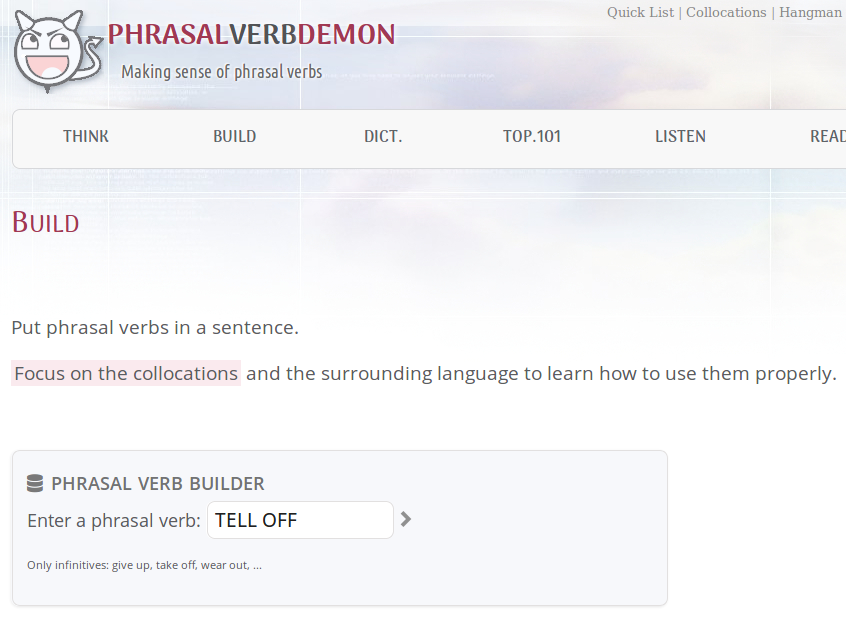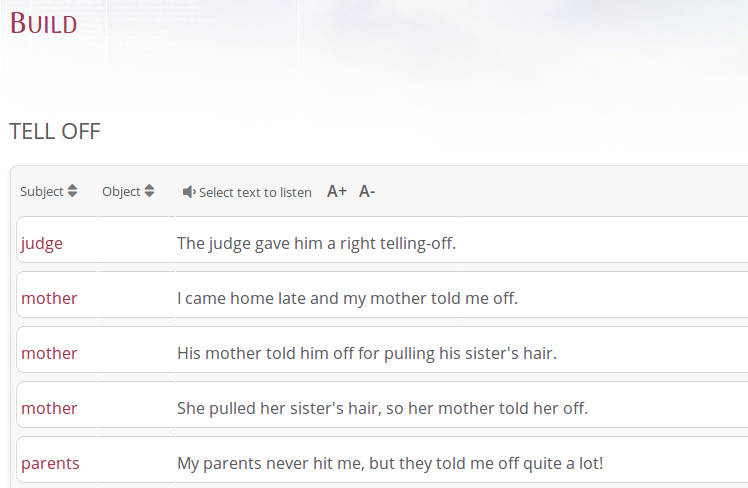7 Phrasal Verbs to Talk About Your Friends
In this post, you’ll learn these seven phrasal verbs that you can use to describe your friends:
Hear from
Run into
Come between
Let down
Stick up for
Fix up
Grow apart
You’ll also learn some helpful tips on how to use the new phrasal verbs you’re learning correctly.
Let’s get started!
Teaching English Just Got Easier!
Save hours of time with an organized collection of high quality, easy-prep ESL lesson plans and worksheets right at your fingertips.
Phrasal Verbs for Friends
Phrasal Verb #1: Hear from
[hears from; heard from; heard from; hearing from]
If you hear from someone, they call you, text you or email you, etc. So we can say,
“I haven’t heard from Maria in so long. I wonder how she’s been.”
“Have you heard from Alex lately?”
Grammar Point
We can’t separate this phrasal verb.
Phrasal Verb #2: Run into
[runs into; ran into; run into; running into]
When you run into someone, you meet them when you didn’t expect to. For example,
“Guess who I ran into this weekend?”
“I ran into Alex at the concert.”
Synonyms
Bump into
Grammar Point
We can’t separate this phrasal verb.
Phrasal Verb #3: Come between
[comes between; came between; come between; coming between]
If something or someone comes between you and a friend, it creates problems or distance between you and them. So we can say,
“We shouldn’t let him come between us.”
“They have such a strong friendship, it’s hard to imagine anything coming between them.”
Grammar Point
We can’t separate this phrasal verb.
Phrasal Verb #4: Let down
[lets down; let down; let down; letting down]
If you let someone down, you disappoint them by not doing something they wanted or expected you to do. For example,
“They’re relying on me, so I can’t let them down.”
“You never let me down.”
Synonyms
Disappoint
Grammar Point
We can separate this phrasal verb:
“I’d never let my friends down.”
“I’d never let down my friends.”
Phrasal Verb #5: Stick up for
[sticks up for; stuck up for; stuck up for; sticking up for]
When a friend defends you or supports your idea, they stick up for you. So we can say,
“Thanks for sticking up for me.”
“Why do you always stick up for her?”
Synonyms
Defend, support
Grammar Point
We can’t separate this phrasal verb.
Phrasal Verb #6: Fix up
[fixes up; fixed up; fixed up; fixing up]
If you fix up your friend with someone, you arrange for them to meet so that they might begin a romantic relationship. For example,
“You’re always trying to fix me up with someone.”
“Can you fix me up with your friend?”
Synonyms
Hook up
Grammar Points
We use with after fix up:
“I want to fix you up with him.”
We can separate this phrasal verb:
“She’s trying to fix up her friend with her brother”
“She’s trying to fix her friend up with her brother”
Phrasal Verb #7: Grow apart
[grows apart; grew apart; grown apart; growing apart]
If you and a friend grow apart, you start to have different interests and opinions and your relationship gradually ends. For example,
“We used to be roommates in university but we grew apart over the years.”
“We were best friends in high school, but we grew apart.”
Synonyms
Drift apart
Grammar Point
We can’t separate this phrasal verb.
How to Remember New Phrasal Verbs
I’ve always wondered how some people can remember things so easily.
You know, the kind of person who remembers the details of every movie — the scenes, the characters and the plot, while I can’t even remember the name of the person I met just a few seconds ago
If you’re anything like me, then remembering new English vocabulary is a challenge.
And you’re not alone. Learning new words is frustrating in any language. But at the same time, you won’t improve your English without expanding your vocabulary, so you’ll need to find ways to overcome this
The good news is, almost no one is born with a photographic memory. Just as you can train any part of your body to become stronger, you can train your brain to absorb more information.
So, what can you do to remember new phrasal verbs?
The Key to Remembering English Vocabulary
Not all strategies are effective. In fact, studies show that testing yourself is so much more powerful than memorizing a big list of words.
There are a lot of websites and apps where you can create flashcards and exercises to test your English vocabulary regularly. Quizlet is a good example. You can create a free account, add new English words and do the vocabulary exercises a few times a week.
But this technique alone is not enough. Yes, it will help you with remembering the words and their meanings, but you still won’t know how to use them correctly.
When I shared my post last week ‘7 Phrasal Verbs to Describe Emotions’, some of you mentioned that you didn’t know how to use these phrasal verbs in sentences.
The thing is, if you don’t use phrasal verbs in your native language, forming sentences with them won’t be easy.
But you can do it and I’ll show you how.
The Importance of Context When Learning Phrasal Verbs
Context is crucial when you’re learning English vocabulary because it helps your brain form images and associate the word to other words.
So when you’re learning new phrasal verbs, you should also be learning how they’re used in sentences.
Let’s use tell off as an example. When you look it up in the dictionary, you’ll learn that when we tell people off, we speak to them angrily for doing something wrong.
Now the next step, and the most important one, is to observe how this word is used in context. You’ll find some example sentences in the dictionary,
But you’ll need more examples to really understand how to use this phrasal verb in a sentence.
So where can you read more high quality sentences of phrasal verbs in context?
Phrasal Verb Demon is a free website that has a growing collection of 20,000 example sentences. They cover both written and spoken English and they show how phrasal verbs are used in authentic context.
So, going back to our new phrasal verb tell off, you can type it in the ‘BUILD’ section of the website:
And it will give you a list of sentences with that phrasal verb:
Phrasal Verb Demon is a growing project and they’re continuously adding new phrasal verbs, so there might be ones that they haven’t added yet. If you can’t find what you’re looking for there, you can look it up on The Intelligent Web-based Corpus.
If you’ve never used a corpus before, this article explains how you can use a corpus to learn and increase your vocabulary in a meaningful way.
Now that you have the techniques that will help you with learning, remembering and using new phrasal verbs, let’s look at 7 phrasal verbs that you can use to talk about your friends.
I hope you’ve found this post useful! I’d like to know, what’s your process for learning new vocabulary? Do you have any tips I didn’t mention in this post?
About the Writer
Sama is the founder of In English With Love and an online English educator from Canada. Her mission is to make quality English learning materials accessible to English learners and teachers everywhere.










